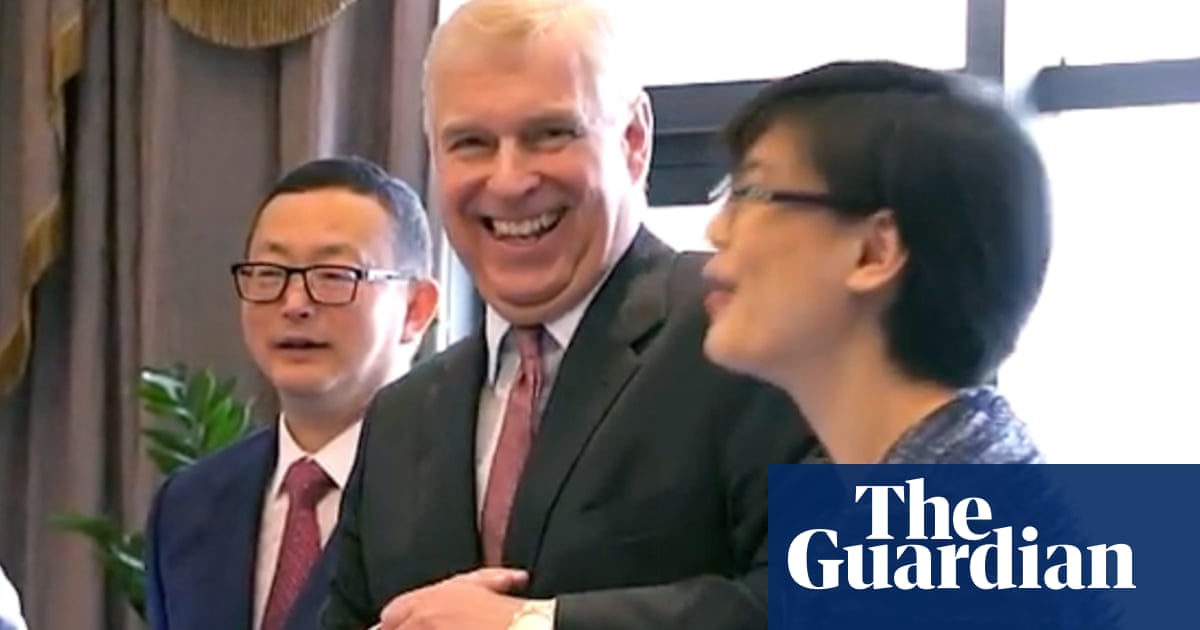Donald Trump’s sweeping tariffs will upend global trade, adding costs and delays to businesses around the world and threatening a recession.
The Guardian spoke to eight businesses about the impact.
Italy: pecorino cheesemaker
On the Italian island of Sardinia, makers of pecorino, the hard, salty sheep’s milk cheese, were digesting news of Trump’s tariffs. Up to 70% of their product is exported to the US.
“We need to understand it better and wait and see if they really mean 20%, but obviously it has created some imbalance,” says Salvatore Pala, president of OP Unione Pastori, an association representing the island’s sheep and goat farmers.
“We should see in the next 10 days how these new taxes, let’s call them that, will affect new orders and prices, which is the thing that worries us the most.”

Pecorino has been made in Sardinia for centuries, contributing to the myriad Italian food delicacies in high demand around the world. Italy’s biggest food and drink orders in the US are wine, followed by olive oil, pasta and cheese, according to figures from Cia, the Italian farmers’ confederation.
“Sardinia is not a rich island, it lives in particular off agriculture and tourism,” Pala adds. “But I am not an alarmist by nature – we need to work together, at the Italian and European level, to try to ensure that this is managed and does not threaten our industry. All farmers have the same issues. This is a very delicate moment and needs to be managed well.”
As told to Angela Giuffrida
Ireland: whiskey maker
The EU and the US enjoyed a deal with zero tariffs on imports of whiskey and bourbon until Trump’s tariff blow.
Clonakilty Whiskey sells its bottles for between $30 (£23) and $50 depending on the edition, prices that would rise to $36 to $60 a bottle under the 20% tariffs being imposed on the EU. The company’s founder, Michael Scully, hopes a post-Brexit launch in the UK could make up for harm to his US market.
“The tariffs are disappointing and bad for business. Outside the actual tariffs themselves, the uncertainty it creates will divert the increased investment we had allocated to the US market over the medium term,” he said.
“The US market is important to us, but it’s not the be-all and end-all. We’ve invested a lot of time, effort, and money into the US market over the last six years, so it is unfortunate. There are no winners in this.
“Currently 15% to 20% of our sales are to the US and while we are getting a very good response to our product, it’s already become a very expensive and difficult market to play in. That said, as a company we do intend to stay in the US, but the uncertainty that has been created by tariffs will mean that extra investment allocation over the medium term will be diverted to other markets.

“While it takes nine to 12 months to open a new market, whiskey is a long-term game, and we are confident that we can pivot easily.
“Our strategy has always been to become a recognised premium Irish whiskey brand in all the major whiskey-drinking nations of the world, so opening new markets is what we have been doing for quite a while.
“In addition to growing our northern European base, we are targeting growth across the Asian market. We already sell in Japan and South Korea and are in discussions with distributors in China and Hong Kong. We also see Australia as a market with opportunity, given the connections with the large Irish diaspora, as is Nigeria.
“This month we are excited to launch our brand in the UK, which had been delayed because of Brexit. Given the similar culture and closeness of the two nations, I see no reason why this market cannot fully replace any losses we experience in the US because of tariffs.”
As told to Lisa O’Carroll
UK: Savile Row tailor
Brian Lishak, co-founder of the tailor Richard Anderson, says: “It is a relief, I guess. We have done much better perhaps than we anticipated. I hope that with negotiation we can perhaps improve on the 10%.
“The US market is strong for us, it is a market we have really explored and developed since we opened 23 years ago.
“From our point of view, the tariffs will affect shipments going out to the US, but that is all done by US customs dealing with our customers. We will inform them that the item is subject to 10% duty imposed by US customs on entry.

“I really believe that the relationship we have with our customers is not going to be very hurt, I don’t think it will have a huge impact. We have had these duties in the past, as our products used to carry a duty of 21% and we managed, and I am sure we will do so this time.
“Obviously it is a shame but it will have to be dealt with, and I think it won’t have too adverse an effect on our trade.”
As told to Joanna Partridge
Australia: cattle and lamb farmer
John Lowe, a managing partner of beef cattle and lamb farm business JF & ML Lowe, says: “I’m a long-term multigenerational farmer. The family’s been doing it for the best part of 200 years in Australia. Cattle would be probably 60% of our operation and 25% to 30% of our beef would be of the grade that could go to the US.
“A 10% tariff across the board for Australia was probably the best of a bad situation. We did better than some other countries and some other industries.
“I’d be much happier if this hadn’t happened. The surplus cows that we sell may get a little bit less money at this stage. The market will tighten a bit.
“But being a farmer, you’ve got to be optimistic to some degree, otherwise you wouldn’t be in the game. In America, they haven’t got enough beef domestically to feed their population. They’ve still got to get supplies of beef from somewhere.

“We will keep on trying to diversify our markets. America is the prime grinding beef market but it’s certainly not the only place where we could send that sort of product. We won’t replace the whole lot, but if we can just adjust the mix a little bit, it may be helpful.
“It’s the uncertainty which is the really hard thing to plan for. It’s a bit like musical chairs: no one wants to be left standing when the music stops – or have a couple hundred containers of beef on the water.
“We probably will be careful about making long-term financial decisions until we’ve got a better view of where things are heading. We’ll see how we muddle along.”
As told to Luca Ittimani
after newsletter promotion
China: fitness equipment maker
Wayne Lee, chief executive of Powertec, a global fitness equipment distributor that manufactures in China, says: “If you’re asking if I know what I’m going to be paying on my three containers arriving from China, I don’t. Neither do our customs brokers. We asked right after the announcement: ‘What’s our duty? So that we can start planning.’ And they’re like: ‘We have no idea.’
“Powertec was founded as a family business in 1997. We manufacture fitness equipment in Qingdao, a city in eastern China, and ship it globally. About 90% goes to the US.
“We’ve been dealing with tariffs since 2018. We did look at manufacturing onshore in the US, in southern states like Tennessee and Alabama. But the incentives are minimal. With increased raw material and labour costs, we calculated that our outgoings would be 60-70% higher. It wasn’t feasible.

“Since November, we’ve been looking at contingencies, hoarding cash, looking at costs. We employ 25 people, mostly in the US, with a couple in China. We are going to have a hard conversation with them and might need to be creative with their compensation.
“I do understand what Trump is trying to do. If it was planned out, if we’d been given a year or two to get to this point, I think a lot of companies would probably get on board with it. I just think it hasn’t been done in the best way.”
As told to Amy Hawkins
India: shrimp farmer
News of Trump’s 26% tariffs on Indian exports sent shock waves through India’s seafood industry. Shrimp is one of India’s biggest agricultural exports and the US is one of the biggest markets for Indian shrimp, accounting for about 44% of all exports, with the market to almost $3bn in recent years.
Previously levies on Indian shrimp exports to the US were about 8%. Pawan Kumar, owner of Sprint Exports Private Ltd, one of India’s biggest seafood companies whose largest market is in the US, says the new tariffs were devastating for the Indian shrimp industry and the impact would be “severe” and create “major financial stress”.
“The US is the most important market for India’s shrimp industry,” he says. “But now Indian exports will have tariffs of 26%, while other competing countries such as Ecuador will have 10%. This gives a huge advantage to Ecuador and means they will probably replace India as the largest supplier of shrimps to the US market.”

Kumar, who is also president of the Seafood Exporters Association of India, says the immediacy of the plan meant that 2,000 containers of Indian seafood currently in transit would now face tariffs which would have to be borne by the exporters such as himself, at an estimated total cost of 6bn rupees (£54m).
He says the brunt would also be borne by the shrimp farmers, as the “uncertainty over the impact of these tariffs on profit margins means that fewer orders will be placed”. Kumar called upon the Indian government to “intervene urgently” to negotiate a deal with the US to exempt seafood from the tariffs, and prevent “all-round distress”.
As told to Hannah Ellis-Petersen
Mexico: vegetable farmer
Mexican businesses breathed a sigh of relief when Trump introduced a 10% baseline tariff on most countries – but Mexico was spared.
“It was a surprise,” says Mario Haroldo Robles, the director of the Commission for the Research and Defence of Vegetables in Sinaloa, a state notorious for cartel violence but also a major agricultural exporter to the US. “During winter, we supply half of all tomatoes in the US market,” Robles says.
“It was a relief,” says a farmer who ships tomatoes and bell peppers from Sinaloa to the US. Like many in the region, he is wary of Trump and asks to remain anonymous.
“Now we’re in a privileged position,” says Robles, adding that while other Latin American countries such as Colombia and Peru that export avocados and other vegetables to the US now face a 10% levy, Mexico remains exempt thanks to its free trade agreement with the US and Canada. “It now gives us a competitive advantage,” he says.

But the real victory is the increased certainty for Mexican farmers. “This allows us to reinvest, determine our commercial strategy, choose our markets and other important business decisions,” Robles says. He admits that “we still don’t know about the future”, but insists that “the Mexican vegetable industry will not shut down” – US consumers rely on its produce, particularly in winter.
Robles applauds the Mexican government’s efforts to curb illegal migration and drug trafficking, which he says helped the country avoid tariffs, but “is also a concern for us here in Mexico”.
As told to Mie Hoejris Dahl
UK: car parts maker
Mitchell Barnes runs Ryse 3D, a Midlands-based manufacturer of automotive parts, which sends 30% of its volumes to the US for use in hypercars.
“Tariffs are never a good thing in my opinion and will probably cause us to work with our customers across the pond to share some of the burden … probably a 50/50 split,” he says.
“We are passionate about being a UK technology business that is disrupting the status quo and that will never change. However, it has accelerated my thinking, and indeed desire, to become a global company and set down additional roots in the US as soon as we can.

“This was always going to be part of our long-term plan, but Trump’s tariffs have probably brought it forward by 18 months as it may give us a way of navigating the additional costs.
“In the short term, we’ll continue to innovate processes to become more efficient and explore new technology that can deliver increased competitiveness.
“Going forward, what do we want from our government? Put simply, a trade deal and Asap please, Keir Starmer!
“I don’t agree with the US president’s approach, but there is little doubt he is trying to feed his domestic economy while our own prime minister starves growth in his own with ridiculous recent tax rises that were already going to cause damage before these tariffs hit.”
As told to Richard Partington

.png) 19 hours ago
3
19 hours ago
3













































